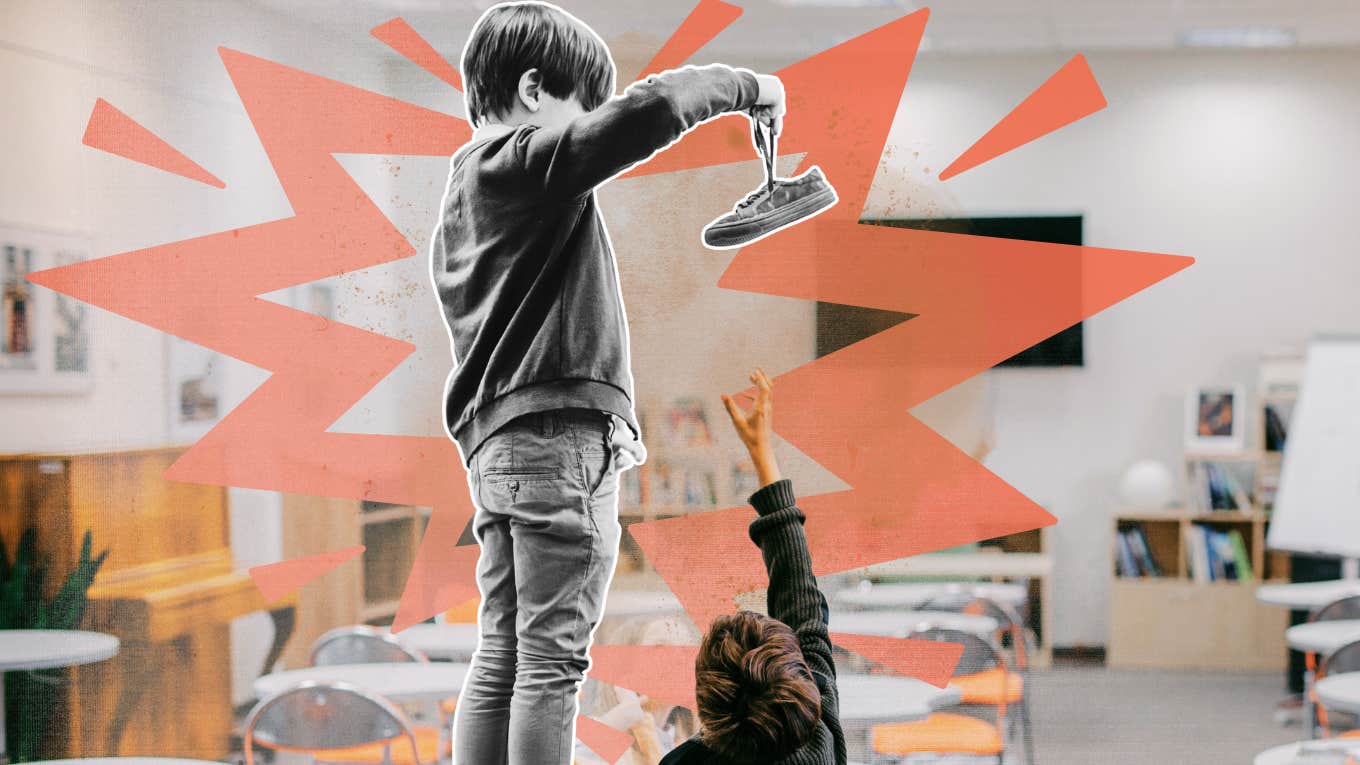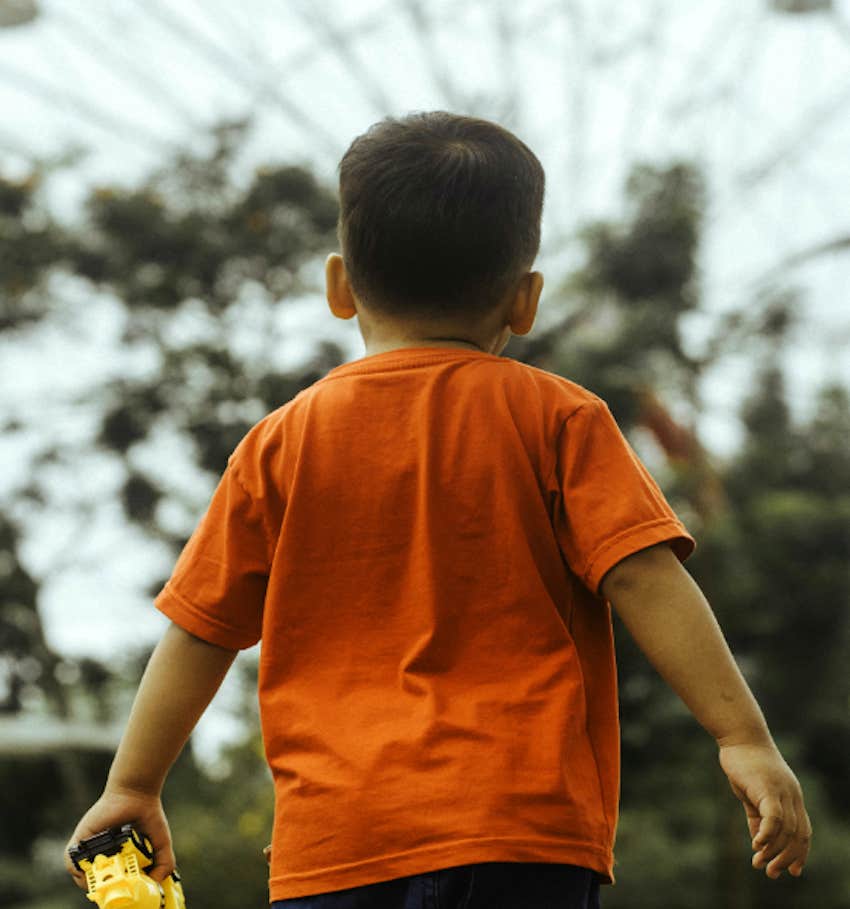5 Painful Signs Your Child Is The Classroom Bully
Wait, is that my child telling other people what to do?
 Mikhail Nilov | Canva
Mikhail Nilov | Canva No child is perfect. Most parents, at some point, have seen their child be mean to other kids. But if you're worried that your son or daughter might be a bully at school because they seem to have a habit of putting others down, there are some subtle signs of bullying you should watch out for.
Maybe, in the past, you got a phone call from your child's school. Your son has pushed another kid's face into some pasta at lunch. He has been reprimanded and is in trouble again. Or you saw your daughter be snarky to other girls at a schoolmate's birthday party and heard her say snide things, like "We can see you are a genius" or "I'm trying to picture you with a personality" to other kids. Perhaps your child's peers do his bidding, or you overhear a comment from another child to her mother at a coffee shop — "Casey says I can’t be a sweater-Saurus at Halloween" — and you wonder, "Wait, is that my child telling other people what to do?"
You think, "Heck no, this is not happening." But sadly, it is.
Here are 5 painful signs your child is the classroom bully:
1. A lack of empathy for others
You notice your child does not try to walk in other people’s shoes. They don't show understanding of others or empathy and don't think about other people. They may blame others and tend not to take responsibility for their actions. More than their peers, your child just does not seem to worry about the feelings of other people or their impact on others. This lack of empathy may be a sign your child is a bully.
2. Obsessing about fitting in
Some kids are very acutely aware of the social hierarchy and social status. Thus, they feel tremendous pressure to fit in. They may try to manage and orchestrate control and are obsessed with their social image and social media, and they spend too much time worrying about how they are perceived. This can lead your child to make choices to fit into, making them turn into a bully, even though they don't mean to.
3. Previous experiences with anger, violence, or bullying
Your child has experienced and witnessed bullying, violence, anger, and punishment. They've been pushed around so they see aggression and punishment as the answer to their problems. Since your child has been a victim or has experienced injustice or witnessed adults using aggressive behavior, they may turn to this as their go-to reaction. This may not be their intention. As a parent, you can help him find another way.
4. A tendency to put other people down
You notice your child tends to put others down while building themselves up. They point out flaws in others, joke about them, and insult them. Low self-esteem, fear, and even feeling overwhelmed can make some kids dismissive and put others down. This is a sign that your child needs your help feeling better about themselves so they don't resort to bullying others.
5. Recurring behavior problems
Your child struggles with controlling their emotions. They have a history of behavior problems, and you notice their friends also share these characteristics. Behavioral problems could mean your child doesn't mean the actions they take. Instead, they are impulsive during fights, leading them to act like a bully.

Photo via Getty
Bullying is a complex issue, and parents are not to blame.
No one ever thinks of themselves as the parent of a bully; no parent wants their child to be a bully to others. We spend a lot of time thinking about those who are bullied, but as a parent, one of the loneliest experiences is to be the mom or dad of a child you suspect may be bullying other kids and not knowing where to turn or what to do.
Children who turn to bullying others often do not mean to be cruel, but things happen that may lead to them eventually putting others down. This can be their low self-esteem, struggles at home, impulsivity, poor relationships and connection to others, poor control over their emotions, social discomfort, a desperate need to fit in, their experience of being punished all the time, seeing violence or aggression, or struggles at school.
Being aggressive can become a lifelong pattern that will hurt your child's future. Part of being a parent is playing detective and trying to figure out what your child needs from very little signs. If your child is struggling and becoming a bully, you can help by spotting these five signs when they are acting up. As a parent, you can help them pick themselves up and adopt better behaviors so putting others down doesn't become a life-long habit.
Caroline Maguire, ACCG, PCC, M.Ed. is a personal coach who works with children with ADHD and the families who support them.

